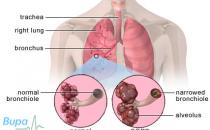Vaccine to help quit smoking, but only for mice

An anti-smoking vaccine has been shown to treat nicotine addiction in mice, according to a study published in the journal Science Translational Medicine.
Dr Prerna Sharma, Clinical Lead, Bupa Health and Wellbeing UK, said: “In this study, the researchers looked at nicotine levels in the brains of mice who had been given an anti-smoking vaccine compared with those that had been given a placebo (dummy) vaccine. The results showed that nicotine levels were 83 percent lower in those who had been given the anti-smoking vaccine.
“The vaccine is based on a type of gene therapy and uses anti-nicotine antibodies. These work by attaching themselves to nicotine in the blood and preventing nicotine from reaching receptors in the brain. Antibodies are proteins produced by your immune system that usually fight against bacteria and viruses.
“When you smoke, nicotine is transported from your lungs, through your bloodstream, to your brain. A chemical effect takes place and releases a hormone called dopamine, which is responsible for feelings of pleasure, lowering stress levels, and changes to your blood pressure and heart rate. Smoking is addictive because your body starts to crave these sensations and you can get withdrawal symptoms if you stop.
“In theory, the vaccine is a great approach because it blocks the nicotine and stops this vicious cycle. It’s possible that if people knew they wouldn’t get any pleasure from smoking, it would help them to quit for good.
“A vaccine that could help people kick the smoking habit would be fantastic, but before we get ahead of ourselves, it’s important to note that this has only been trialled in mice. As yet, there have been no clinical trials in humans, so we’re a long way from a vaccine becoming a reality.
“The scientists found that a single dose of the vaccine continued to work for up to 18 weeks. This is a really short time-frame and we don’t know if this would be long enough to help people stop smoking. Most importantly, the mice weren’t actually addicted to nicotine before they were given the vaccine, hence we don’t know if these results would be different for most smokers who are actually addicted. It’s impossible to say if any of the effects seen in mice would be the same in humans.
“The fact is, we are still a long way off from a vaccine being developed to help people give up smoking. In the meantime, there are plenty of other methods available to help people quit, such as nicotine replacement therapy (NRT), counselling, willpower or a combination of all three. There is lots of help and support out there – you’re not alone, so speak to your doctor about how to get started.”
Produced in collaboration with Bupa Health Information Team, June 2012.
Key facts
- Nicotine is an addictive drug found in cigarettes, meaning you can become physically and psychologically dependent on it. This means you will get withdrawal symptoms if you stop smoking.
- Nicotine replacement therapy (NRT) is available in a variety of forms and aims to replace the nicotine you get from smoking until you’re no longer dependent on it.
- Your doctor can refer you to a stop smoking service which provides counselling and help. They may also be able to put you in touch with a local support group.
- Going cold turkey means you rely on your willpower alone to stop smoking. This means you will need to be able to ignore withdrawal symptoms and refuse to give in to temptation.
Related hubs
- Smoking
Related topics
- Effects of smoking
- Nicotine replacement therapy (NRT)
- Quitting smoking
- Ways to stop smoking
















